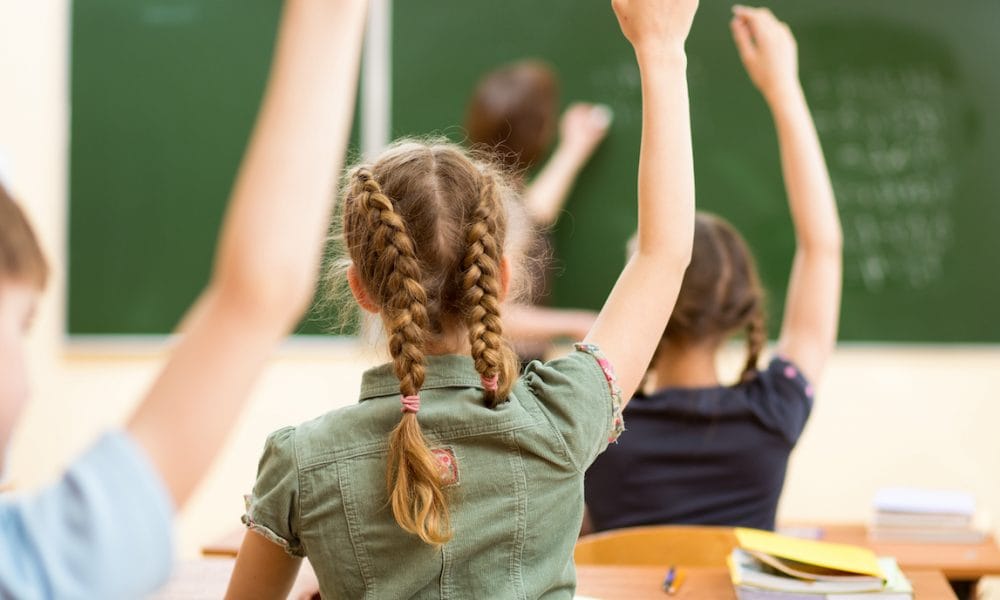
Teachers and support staff already play an essential role in a child’s development, but their importance is increased tenfold when dealing with a child who has endured a brain injury.
Their return to school is one of the biggest steps of the rehabilitation process, so it is crucial this is done properly.
To make sure all education staff are properly trained in how to do this, the National Acquired Brain Injury in Learning and Education Syndicate (N-ABLES) have launched a new set of resources.
Created in partnership with The United Kingdom Acquired Brain Injury Forum (UKABIF), the information will be used to help children from ages four to 18.
From inclusion to understanding, the resources highlights a number of steps teachers can take to make sure these children are not left behind.
Dr Emily Bennett, consultant clinical psychologist at Nottingham Children’s Hospital, spoke on behalf of N-ABLES about why this information is so needed.
“A lot of the work that we’ve been doing is thinking about how we can upskill teachers,” she said. “They don’t have that background with ABI and what that leads to is a child coming back into school and the impact of that brain injury being missed.
“We also find that over time what happens is behaviours that might come as a result of the injury become misinterpreted or misattributed, so people are forgetting about the brain injury.
“I think the other reason that it matters is that there is this lack of pathways and there’s a lack of joined up thinking across health and education.
“What we found clinically is that it means the teachers feel that they’re left with a situation that they don’t believe they’ve got any expertise in.
“So the guidance really spells out who should be involved, what can they do to help and it’s aiming to get everybody working together and sharing this expertise
Through a set of posters, booklets and educational materials N-ABLED and UKABIF are looking to make sure the unique needs of children affected by ABI are met.
Their younger years are then most crucial for their development, which is why both groups feel this training for school staff is vital.
“Returning to school is absolutely crucial, there’s no doubt,” Dr Bennett said. “For many children schools are actually the biggest rehab provider that they have any contact with.
“We think that probably around 70 per cent of most children’s rehab will happen in school and it’s a place where they’re in this natural, experience rich environment.
“It’s somewhere that they relearn a lot of the skills that they may have lost, particularly with regards to things like cognition and social skills.
“But it’s also somewhere that they can learn to compensate for those acquired difficulties, they can learn new ways of trying to do things and with the right support around them that can be really successful.”
The resources are off the back of an independent inquiry from 2018 which outlined a number of recommendations for the government to undertake to better care around brain injury.
The Time to Change report also displayed some alarming statistics, such as traumatic brain injuries costing the NHS around £15 billion a year.
Furthermore it led to the formation of N-ABLES, which includes professionals from a range of backgrounds including head teachers and both educational and clinical psychologists.
The All-Party Parliamentary Group on Acquired Brain Injury (APPG on ABI) discussed the improvements, including allowing ABI to be classed as a special educational need.
However where UKABIF and N-ABLE’s are currently concerned is around making sure all education professionals have a minimum awareness and understanding of the condition.
The Department of Education has been heavily involved with this, but all organisations are aware that every child’s needs are different and they need to be empowered from this.
“The guidance was made off the back of that Time to Change report,” Dr Bennett said. “One of the recommendations in the education section was that we needed a clear pathway and support for returning to school after ABI.
“What we’re faced with is a situation where there’s a handful of pathways and processes around the country, but in most areas there’s a real lack of any coordinated or collaborative learning around this.
“We discussed clinical experience and thought about how we could produce a set of core principles to provide this effective support around a return to school.
“What we wanted to do was to make sure that the guidance was really focused on the child and young person, but then encouraged professionals to work together around a set of shared principles.”
More recently the UK has undergone some huge changes to its educational practices brought on by the pandemic, leading to a large-scale return to school effort after lockdown.
Dr Bennett says this has been a tough time for those affected by ABI.
“I think clinically our experience has been really mixed. From a rehab perspective, you lose a lot with home schooling, especially that experience rich environment.
“For those who have had an injury during COVID, it’s been really complicated as we’ve wanted to get them back into school and get them that natural rehab that they need.
“It has been more challenging and I think COVID hasn’t helped any of us, but it’s certainly not made life easy for young people with an acquired brain injury.”
Dr Bennett also said there has been a real positive reaction to this new approach from educational staff, with the resources set to be sent out to more schools in the coming weeks.
The guidelines were first announced at The Children’s Trust National Paediatric Brain Injury virtual conference, with that particular charity also recently publishing its own set of recommendations in this area.










